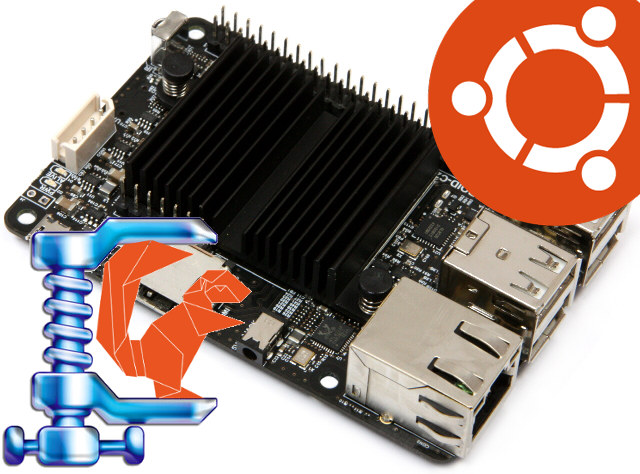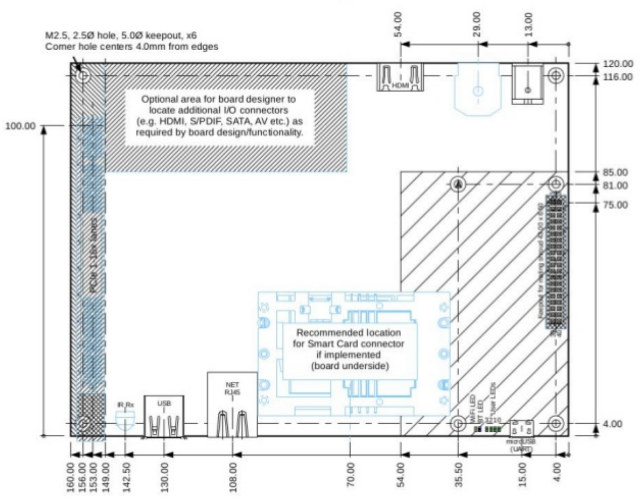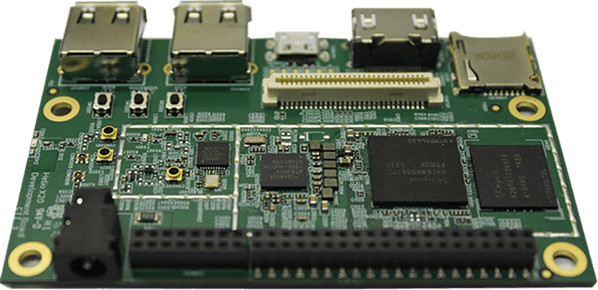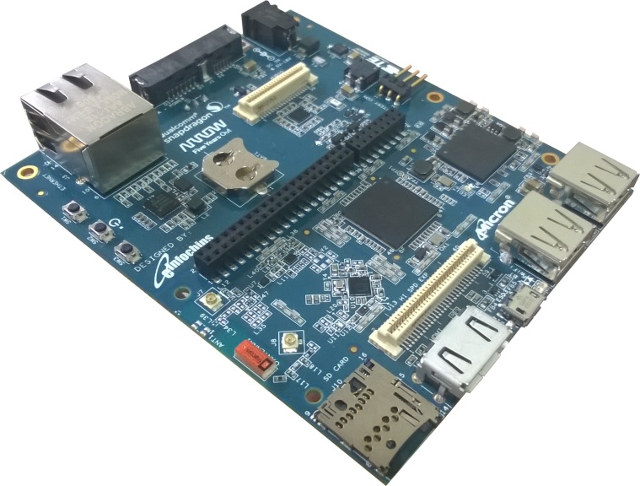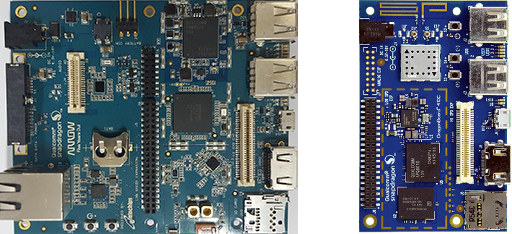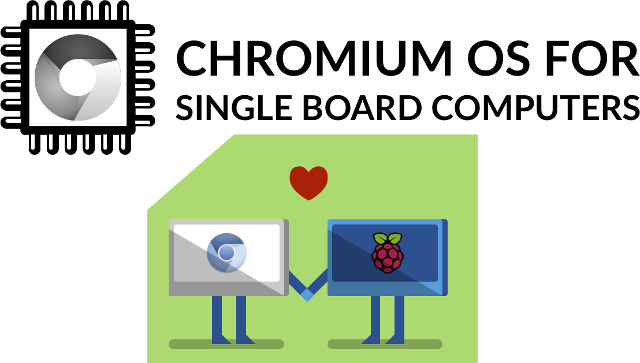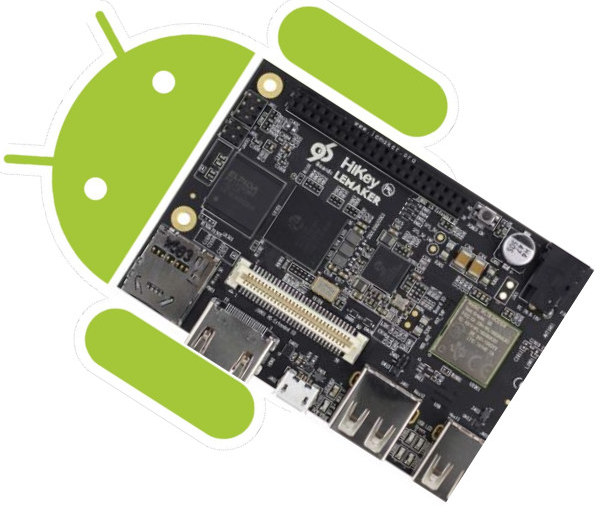If you’ve been wanting minimal Ubuntu distributions for your server, IoT, or other headless projects, there are some good news from Hardkernel with the release of a minimal Ubuntu 16.04 image for ODROID-C2 and ODROID-C1+ boards, and Canonical has recently announced Actions Semi S900 based BubbleGum-96 board was getting support for Ubuntu Core distribution. If you’re using an ODROID board you can download ubuntu64-16.04-minimal-odroid-c2-20160803.img.xz (196MB) firmware, which become 1.7 GB once uncompressed and flash it 2GB or greater micro SD card. After Raspberry Pi 2 and Samsung Artik 5/10, Bubblegum-96 is the third officially supported board that can run Ubuntu Core. You can download the 3.63GB beta image and instructions to flash it from an Ubuntu 16.04 machine on Mega. Bugglegum-96 is a 96boards compliant development board based on an quad core Cortex A53 processor with 2GB RAM and 8GB flash manufactured and sold by ucRobotics for $89. Jean-Luc Aufranc […]
96Boards Gets a TV Platform Edition Targeting $50 Mid-range Boards, $99 High-end Boards
96Boards was born as a hardware and software standard with Consumer (CE) & Enterprise Editions (EE), with different form factors with the latter focusing on server boards, but with similar software requirements requiring recent and mostly open source software. The consumer edition was also split into “Standard” and “Extended” editions, which the latter allowing for larger boards with more features, while the Enterprise Edition has its own larger format, as well as an option for micro-ATX form factor. I’ve just learned that a “fifth” 96Boards standard has been worked on with 96Board TV Platform for Home Gateways, OTT Streaming boxes, and TV boards with prices target of $50 or lower for mid-range boards, and $99 or lower for high-end boards. 96Boards TV Platform hardware requirements: Dimensions – 160 x 120 mm (EE Standard form factor) RAM – 1GB minimum; 2GB recommended Flash – 8GB eMMC minimum WiFi – 802.11 g/n […]
Mediatek Labs Unveils Deca-core Helio X20 Development Board Compliant with 96Boards CE Specifications
More and more companies are joining the 96Boards bangwagon, and the latest move by Mediatek Labs will mean their Helio X20 development board, designed in collaboration with ArcherMind, will be the most powerful 96Boards CE edition released so far thanks to its deca-core processor with two Cortex A72 cores, and 8 Cortex A53 cores. Mediatek Helio X20 board specifications: SoC – Mediatek Helio X20 (MT6797) deca-core processor with two ARM Cortex A72 cores @ 2.3 GHz, four Cortex A53 @ 1.95 GHz, four Cortex A53 @ 1.4 GHz, and ARM Mali-T880 GPU @ 800 MHz System Memory – 2GB LPDDR3 @ 933 MHz Storage – 8GB eMMC 5.1 flash + micro SD 3.0 (UHS-I) slot Video Output – HDMI up to 1080p @ 30 fps Connectivity – 802.11 b/g/n WiFi, Bluetooth 4.1, GPS with antenna connector USB – 2x USB 2.0 host ports, 1x micro USB port (device only). Expansion: […]
SD 600eval Development Board Compliant with 96Boards CE Extended To Sell for $279
Last month, we found out that Arrows Electronics was working on DragonBoard 600c development board featuring Qualcomm Snapragon 600 processor and based on 96Boards CE Extended version which allows for extra features such as SATA and Ethernet ports. At the time, the complete specifications were not available, and neither pricing. We do now have more details, as the board designed by Elinfochips is (also) called SD 600eval, and is available on back order for $279. SD 600eval specifications: SoC- Qualcomm Snapdragon 600 (APQ8064) quad-core Krait 300 processor @ up to 1.7 GHz with Adreno 320 GPU @ 400MHz supporting OpenGL ES 1.1/2.0, OpenCL 1.1, WebGL 1.0, and DirectX 9.3 System Memory – 2GB PoP LPDDR2 @ 533 MHz Storage – 16GB eMMC Flash + micro SD 3.0 (UHS-1) slot + SATA port Video Output – HDMI up to 1080p Video – 1080p@30fps HD video playback and capture (h.264/AVC) Connectivity – […]
Linux 4.6 Release – Main Changes, ARM and MIPS Architectures
Linus Torvalds released Linux Kernel 4.6 earlier today: It’s just as well I didn’t cut the rc cycle short, since the last week ended up getting a few more fixes than expected, but nothing in there feels all that odd or out of line. So 4.6 is out there at the normal schedule, and that obviously also means that I’ll start doing merge window pull requests for 4.7 starting tomorrow. Since rc7, there’s been small noise all over, with driver fixes being the bulk of it, but there is minor noise all over (perf tooling, networking, filesystems, documentation, some small arch fixes..) The appended shortlog will give you a feel for what’s been going on during the last week. The 4.6 kernel on the whole was a fairly big release – more commits than we’ve had in a while. But it all felt fairly calm despite that. Linux 4.5 added […]
Qualcomm DragonBoard 600c 96Boards Development Board Includes Ethernet and SATA
A few weeks ago, I was informed that some code about DB600c board powered by Qualcomm Snapdragon 600 processor (APQ8064T) was making it into mainline Linux, and more recently I found a website listing DragonBoard 600c with a low resolution picture of the board. While we don’t have the complete specifications yet, the form factor of the board is quite interesting, as we’ll find the typical 96Boards CE form factor on the right, and some extra interfaces on the left with Ethernet and SATA. It turns out, as we’ll see below, it’s perfectly compliant (hardware wise) with 96Boards CE “Extended Version” specifications. Preliminary specifications of DragonBoard 600c board: SoC- Qualcomm Snapdragon 600 (APQ8064 Fusion 3) quad-core Krait processor @ 1.7 GHz with Adreno 320 GPU @ 400MHz System Memory – 1GB or more RAM (TBD) Storage – eMMC Flash + micro SD slot + SATA port Video Output – HDMI […]
Chromium OS for SBC Aims to Turn Popular Development Boards into Chromeboxes
A team of developer has come together last December in order to provide Chromium OS, the open source project which Chrome OS is based on, to single board computers such as Raspberry Pi boards. So far, they’ve provided Chromium OS images for Raspberry Pi 2 & 3, but more boards should be supported in the future. The latest version 0.5 release is said to be usable, but WiFi, Netflix, and HTML5 video are not working. The installation procedure is standard. You simply need to download and uncompress the archive (e.g. SamKinison_v0.5_Pi3_16GB.tar.xz), and dump it on a micro SD card with Win32DiskImage or dd. They have released different images for Raspberry Pi 2 & 3, and different SD card sizes (2GB and 16GB). Chromium OS is using 12 partitions, so that may be why they don’t provide a single image and resize the file system during the first time. You can […]
96Boards Hikey Development Board is Now Officially Supported in AOSP
Hikey is a one of the first 96Boards compliant development board manufactured by either LeMaker in China and CircuitCo in the US, and while the hardware requirements of 96Boards specifications are rather easy to meet, the software requirements including “bootloader (open source), accelerated graphics support (binary or open source), a Linux kernel buildable from source code based from mainline, or the latest Google-supported Android kernel version” are much harder to comply with. Linaro had a very good news for Linaro Connect Bangkok as they announced Hikey board was supported in Android Open Source Project (AOSP). So that means Hikey board will run the latest version of Android like Google Nexus devices, with the advantage of also getting more recent devices. If you want to build an Android image from AOSP just retrieve the source code:
|
1 2 |
repo init -u https://android.googlesource.com/platform/manifest repo sync -j8 |
Grab & extract vendors binaries for Hikey from Google.com. and complete the build:
|
1 2 3 |
source build/envsetup.sh lunch hikey-userdebug make -j8 droidcore |
[…]


